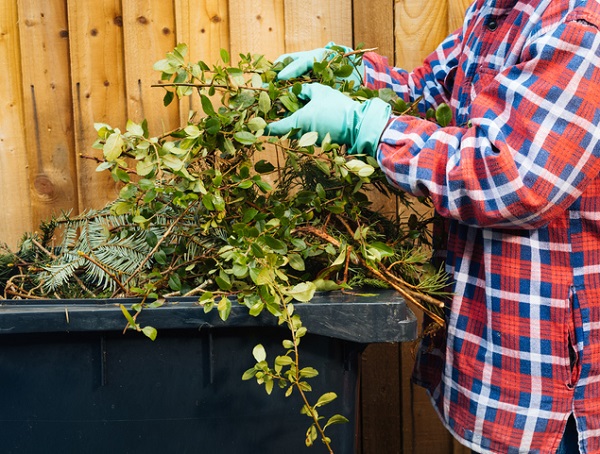Waste Recycling For Homeowners
Reading time: 5 minutes
Taking care of gardens and lawns naturally creates waste. Grass clippings, twigs, leaves and other garden refuse all mount up and need to be disposed of and recycled. When it comes to organic garden waste, there’s always the option of composting. It’s a great way to make use of stuff you’re going to throw out anyway, and you can make it work for your garden.
How do you get rid of garden waste?
For larger amounts of garden waste, or the kind of garden rubbish that won’t easily break down, you might consider alternative ways of getting rid of it. This can mean either going to a waste recycling centre yourself or getting it collected by a company or the council. This might depend on what’s available in your area, and your local authority’s guidelines.
Do local authorities have to collect garden waste?
Local authorities can provide a garden waste collection service, but you may need to check what services are available from your council. For other kinds of waste, such as branches or the kind of refuse that’s slower to break down, you would need to check what can be collected. There is also likely to be a charge for the disposal of garden waste by your local authority.
Your council should be able to take garden waste away by providing a special sack or bin. There might be instructions to follow for garden waste recycling, so check these when contacting your local authority to arrange collections. As a side note, there might be a fine if you throw garden waste in with your normal rubbish instead of using the correct bin or sack.
Who else can dispose of garden waste?
You can contact third parties who are able to take larger amounts of refuse to collect landscaping waste materials. This may include organic waste as well as other types of garden rubbish including pots, ornaments or even furniture. However, it’s good to check with the company you contact to see what they’re able to take away.
If you’re using a third party, they will need to hold a waste carrier licence. This allows professional clearance of commercial waste, which may include industrial as well as green waste, and transportation across British highways. Holding this licence implies duty of care. This means the carrier must meet certain guidelines about responsible dumping and recycling that won’t cause harm to the environment, wildlife or people.
Can I recycle garden waste myself?
If you don’t want to arrange for collection of your garden waste, you can recycle or dispose of it yourself. One of the best ways of recycling organic waste is to compost at home. This is a practical way of making use of biodegradable matter that you naturally discard day to day. Not only does this include things like grass cuttings and fallen leaves, but also the bits you throw away from foods like banana skins, apple cores, potato peelings and eggshells.
Can I burn garden waste?
While having a bonfire in your garden isn’t illegal, it’s still important to follow guidelines regarding your neighbours and public nuisance laws. Burning household items that can cause health risks or pollution from fumes. Plastics, for example, do have laws covering this. Damp woods or lacquered and varnished garden furniture can also cause thick smoke. This can be a nuisance to neighbours, as well as potentially causing poor visibility if blown across nearby roads.
If this has helped to answer your garden recycling questions, you’ll find more landscaping help and advice here at Trade Corner.
Disclaimer: The information contained on this page is intended as an overall introduction and is not intended as specific advice from a qualified professional. Travis Perkins aims to avoid, but accepts no liability, in the case that any information stated is out of date.







